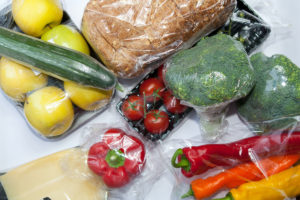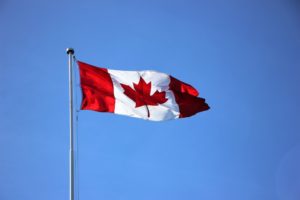Canada’s ban on single-use plastic items delayed until 2022
Despite previously announcing that a ban on certain single-use plastic items would take effect by the end of this year, the federal government now says Canadians can expect to see the final regulations sometime in 2022.
According to Samantha Bayard, spokesperson for Environment and Climate Change Canada, a draft of the proposed regulations will be published “in the coming weeks,” followed by a period of time allotted for public comment. Once the final regulations are published, there will be a transition period for retailers and other companies to comply with the ban before it actually takes effect, she wrote in an email to CTVNews.ca.
The ban on six single-use plastic items, including checkout bags, cutlery and straws, is part of the federal government’s larger plan to eventually eliminate plastic waste in an effort to reduce greenhouse gas emissions.
“Canadians expect the Government to take action to protect the environment and to reduce plastic pollution across the country,” wrote Bayard. “A key part of Canada’s plan to achieve zero plastic waste by 2030 is a ban on harmful single-use plastic items where there is evidence that they are found in the environment, are often not recycled, and have readily available alternatives.”
According to Environment and Climate Change Canada, Canadians discard three million tonnes of plastic waste each year, and only nine per cent of it is recycled. A recent study conducted by Deloitte and Cheminfo Services Inc. shows that the majority of plastics introduced to the Canadian market and discarded as waste in 2016 were actually packaging materials. This included plastic bags, bottles and other items commonly used in the food and beverage sector.
In 2016 alone, 29,000 tonnes of plastic entered the environment as pollution, the government said, and single-use plastics make up a majority of the plastic litter that pollutes Canada’s rivers, lakes and oceans. By making changes to plastic waste management, it’s possible to reduce 1.8 million tonnes of greenhouse gas emissions per year, the government said.
“Provinces, territories, and municipalities are leaders in the recovery and recycling of plastic waste,” wrote Bayard. “The Government of Canada is also continuing to work with them to strengthen existing programs and increase Canada’s capacity to reuse and recover more plastics.”
A recent example of one municipality taking the lead in limiting plastic waste can be found in Laval, Que., where a municipal bylaw that bans single-use plastic bags and cutlery is currently in effect. The city of Edmonton also released its own plan to reduce single-use plastic items, which involves a ban on plastic shopping bags.
In her statement, Bayard noted that the government will work “to ensure that rules are consistent and transparent across the country.”
This consistency is key for members of Canada’s food service industry, explained Olivier Bourbeau, vice-president of federal and Quebec affairs for Restaurants Canada, specifically restaurant chains. With locations across the country, it isn’t feasible for companies to order different food service products for different cities based on their individual regulations, he said, and his organization would prefer to see a more unified approach when it comes to implementing the ban.
“We would like one framework that would cover Canada instead of seeing all these small municipalities coming with their own rules, which makes it extremely difficult for us to follow…from coast to coast in all regions,” he said.
In terms of enforcing the ban, Bayard pointed to government officers who perform inspections in order to confirm that companies and individuals are following laws and regulations set out by the department.
“To provide the best possible service to Canadians, ECCC’s Enforcement Branch directs its inspections and priorities based on an approach that focuses on the risks of non-compliance that may cause the most environmental harm,” she wrote.
At this point in time, she said, “it would be premature to comment on future enforcement actions related to this issue.”
Explaining the reason for its delay in implementing the ban, the government said it wanted to “ensure ready alternatives were available as the Regulations came into force.” The department also pointed to the COVID-19 pandemic as another reason for the setback.
“Additional engagement with stakeholders was undertaken to reflect the impact of the COVID-19 pandemic in the development and implementation of our approach to plastic pollution,” Bayard wrote.



